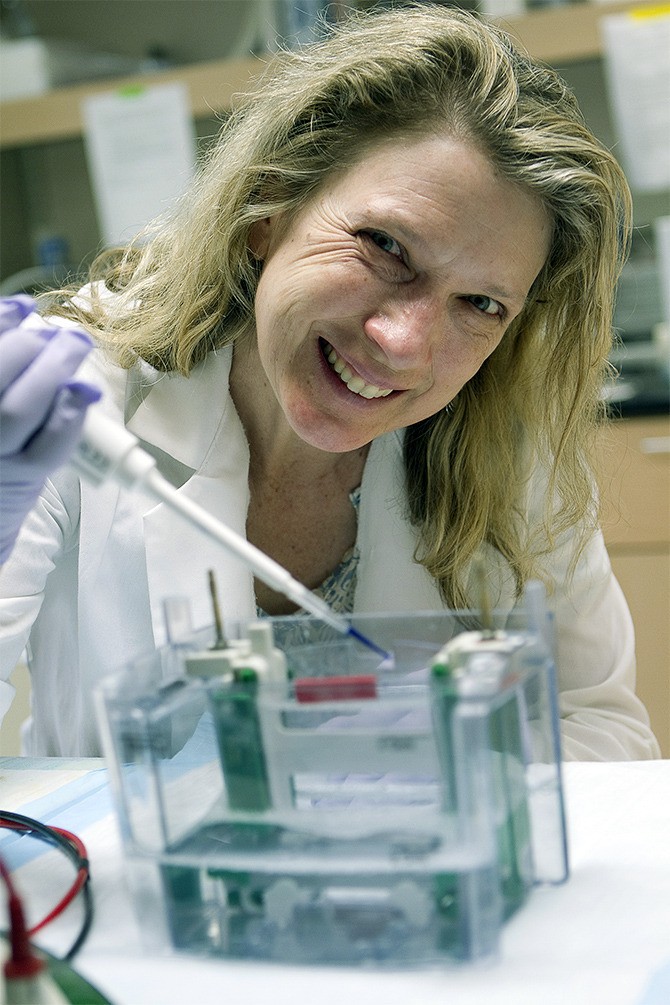Mercer Island High School Science teacher Julia DeBroux is one of 20 high school educators who have spent part of her summer improving science education.
DeBroux is working beside scientists in research laboratories at Fred Hutchinson Cancer Research Center and partner sites throughout Seattle in a program called the Science Education Partnership, or SEP.
The 20-year old program provides local teachers with the opportunity to expand their science knowledge and curriculum with hands on training in Fred Hutch’s and partnering institution’s research labs.
“Our goal is for teachers to bring back what they learn over the summer to help jump-start their students’ knowledge of bioscience and research and perhaps kindle their interest in jobs or careers in science,” said Nancy Hutchison, Ph.D., director of the SEP.
The program takes place over a 16-day period in July. Teachers receive a jumpstart session to learn laboratory basics and then spend about half of their time working one-on-one with a scientist-mentor in a research laboratory on projects tailored to their interests.
Mentors are key to the success of this program, each donating over five full days’ worth of time to train science teachers, said Hutchison. Often, mentorships extend beyond the summer session to include classroom visits by scientists during the school year. The other half of the educators’ time will be spent in the Teaching Laboratory at Fred Hutch, where they will work as a group with Lead Teachers – master teachers experienced with SEP – focusing on effective ways to use scientific concepts and techniques in the classroom and refining curricula for the coming school year.
Fred Hutch’s SEP program also provides access to learning all year long with the SEP’s science-kit loan program. “We send out the real thing; these are not kids’ toys,” Hutchison said. The kits, costing up to $10,000 each, are filled with supplies that range from the exotic (microcentrifuges) to the mundane (plastic wrap, meat tenderizer, dishwashing detergent).
SEP also provides teachers with:
• surplus lab supplies that have been donated by labs from throughout the research community and access to a resource library;
• a $500 stipend and graduate-level credit through the University of Washington.
“Each new group of teachers coming into SEP directly influences about 3,000 students annually,” said SEP director Hutchison.


